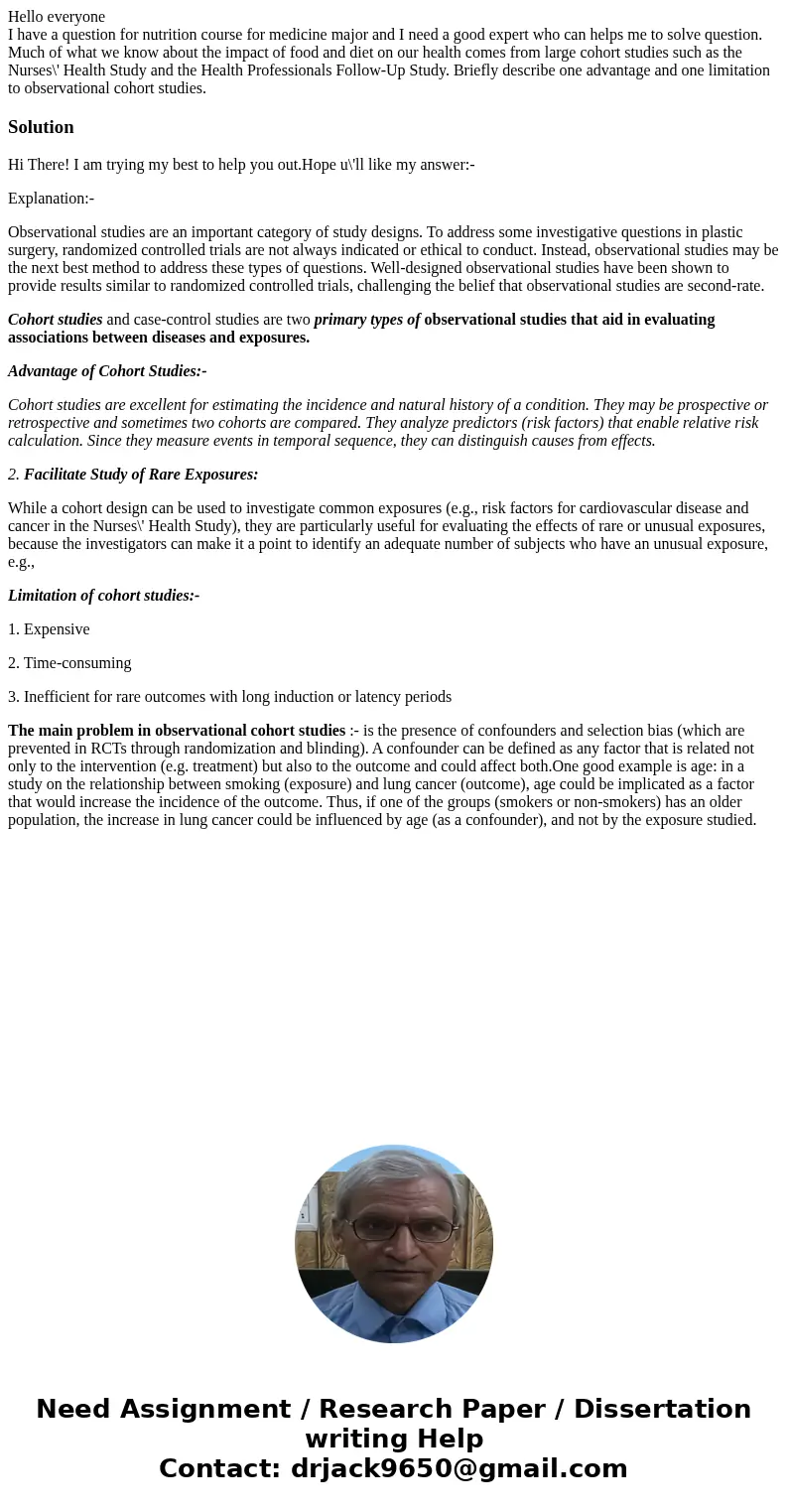Hello everyone I have a question for nutrition course for me
Solution
Hi There! I am trying my best to help you out.Hope u\'ll like my answer:-
Explanation:-
Observational studies are an important category of study designs. To address some investigative questions in plastic surgery, randomized controlled trials are not always indicated or ethical to conduct. Instead, observational studies may be the next best method to address these types of questions. Well-designed observational studies have been shown to provide results similar to randomized controlled trials, challenging the belief that observational studies are second-rate.
Cohort studies and case-control studies are two primary types of observational studies that aid in evaluating associations between diseases and exposures.
Advantage of Cohort Studies:-
Cohort studies are excellent for estimating the incidence and natural history of a condition. They may be prospective or retrospective and sometimes two cohorts are compared. They analyze predictors (risk factors) that enable relative risk calculation. Since they measure events in temporal sequence, they can distinguish causes from effects.
2. Facilitate Study of Rare Exposures:
While a cohort design can be used to investigate common exposures (e.g., risk factors for cardiovascular disease and cancer in the Nurses\' Health Study), they are particularly useful for evaluating the effects of rare or unusual exposures, because the investigators can make it a point to identify an adequate number of subjects who have an unusual exposure, e.g.,
Limitation of cohort studies:-
1. Expensive
2. Time-consuming
3. Inefficient for rare outcomes with long induction or latency periods
The main problem in observational cohort studies :- is the presence of confounders and selection bias (which are prevented in RCTs through randomization and blinding). A confounder can be defined as any factor that is related not only to the intervention (e.g. treatment) but also to the outcome and could affect both.One good example is age: in a study on the relationship between smoking (exposure) and lung cancer (outcome), age could be implicated as a factor that would increase the incidence of the outcome. Thus, if one of the groups (smokers or non-smokers) has an older population, the increase in lung cancer could be influenced by age (as a confounder), and not by the exposure studied.

 Homework Sourse
Homework Sourse